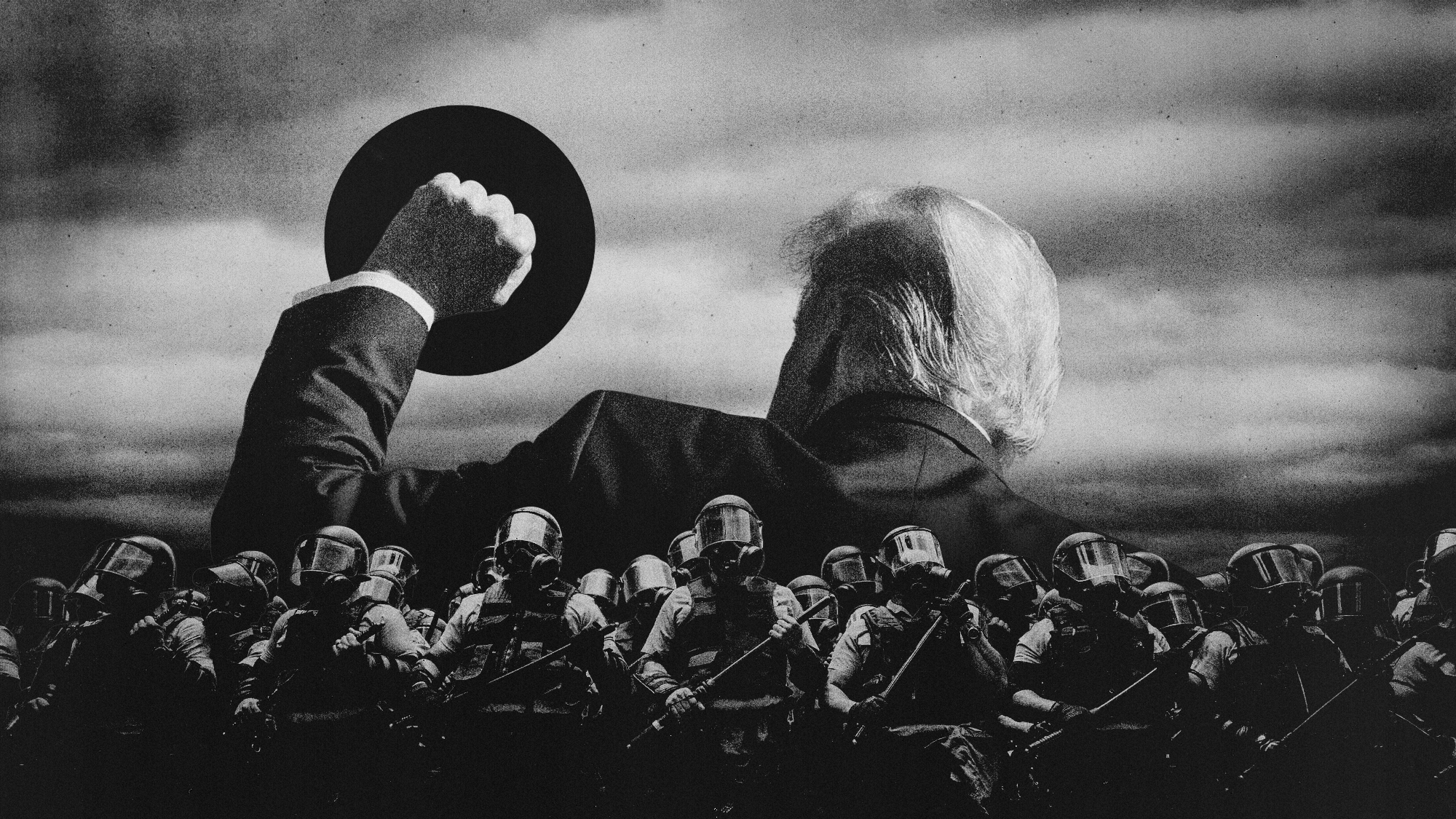Is it time to do something about the Insurrection Act?
New worries over an old law have prompted calls for legislative change ahead of Trump's potential return to office


A free daily email with the biggest news stories of the day – and the best features from TheWeek.com
You are now subscribed
Your newsletter sign-up was successful
As the self-proclaimed "President of law and order," Donald Trump spent much of his time in office threatening to deploy military forces domestically to quell instances of civic unrest, insisting at one point that sending troops to cities rocked by protests over the 2020 death of George Floyd would "quickly solve the problem." While Trump "did not mention it by name," his suggestion of a domestic military deployment was invoking the Insurrection Act — legislation allowing a president to use troops as law enforcement "under some conditions," The New York Times explained at the time. The act, actually a series of combined statutes stretching back more than 200 years, "temporarily suspends the Posse Comitatus rule" which ordinarily bars military forces from acting as a domestic police force, and is intended to be applied only in exceptional cases "truly beyond the capacity of civilian authorities to manage," according to the Brennan Center for Justice. It also affords presidents powers that are, per the Center, "dangerously overbroad and ripe for abuse."
Now, as he sits comfortably atop the pack of Republican presidential hopefuls, candidate Trump is once again conjuring the specter of domestic military deployments, with The Washington Post reporting that he and his allies are already drafting plans to "potentially invoke the Insurrection Act on his first day in office" should he win the presidency next year. It's a prospect that has chilled some legal experts, and prompted many to ask whether it's time to adjust the law's broad latitudes before it's too late.
What the commentators said
The "principal constraint" that has largely stayed presidents from invoking the Insurrection Act in the past is predominantly a question of optics and politics, Brennan Center national security expert Joseph Nunn told The Associated Press, explaining that "presidents don't want to be the guy who sent tanks rolling down Main Street." There's not much really in the law itself to constrain the White House.
The Week
Escape your echo chamber. Get the facts behind the news, plus analysis from multiple perspectives.

Sign up for The Week's Free Newsletters
From our morning news briefing to a weekly Good News Newsletter, get the best of The Week delivered directly to your inbox.
From our morning news briefing to a weekly Good News Newsletter, get the best of The Week delivered directly to your inbox.
Ultimately the Insurrection Act is "a law that in many ways was created for a country that doesn't exist anymore." And while it's been used for commendable purposes, such as enforcing "desegregation in the South against local and state opposition," it has also been used by presidents to "suppress labor movements and to quell so-called 'race riots' that were often triggered by state violence against people of color," Nunn wrote in Slate last month. Trump, meanwhile, is "willing to use the United States military as his own personal domestic police force."
Noting that some iteration of, and statutes within, the Insurrection Act are "probably necessary," conservative New York Times columnist David French argued that the language of the legislation has "not always been so broad" — particularly prior to the Civil War — and that now is the time to "rein in the excesses of the act." One proposal "worth adopting" has already been submitted by the Brennan Center to the House Select Committee on Jan. 6, and features guidelines on when and how the act can be invoked, as well as details on congressional and judicial oversight.
The prospect of Trump deploying troops under the Insurrection Act means "fundamental rights such as the freedoms of speech and assembly are at stake," William Galston asserted for The Wall Street Journal. Since a second Trump term would likely be "much more effective than the first," it could ultimately "trigger the biggest threat to constitutional governance since the Civil War." Despite the "institutional checks and balances" that prevent a president from doing "something randomly out of the blue," Trump in particular is good at crafting "a semi-logical train of thought that might lead to a place where there's enough mayhem, there's enough violence and legal murkiness" that the military might move forward under the Insurrection Act, Brookings Institute foreign policy expert Michael O'Hanlon told AP.
What next?
In all likelihood, not much will change. Explaining that he's "not naïve," the Times' French recognized that it will be "difficult if not impossible for any reform bill to pass Congress," — particularly under House Speaker Mike Johnson (R-La.), a "central player in Trump's effort to overturn the 2020 election." Still, argued The Brennan Center's Michael Waldman, "there's nothing remotely partisan" about his group's proposed revisions. "They're common sense."
A free daily email with the biggest news stories of the day – and the best features from TheWeek.com
Rafi Schwartz has worked as a politics writer at The Week since 2022, where he covers elections, Congress and the White House. He was previously a contributing writer with Mic focusing largely on politics, a senior writer with Splinter News, a staff writer for Fusion's news lab, and the managing editor of Heeb Magazine, a Jewish life and culture publication. Rafi's work has appeared in Rolling Stone, GOOD and The Forward, among others.
